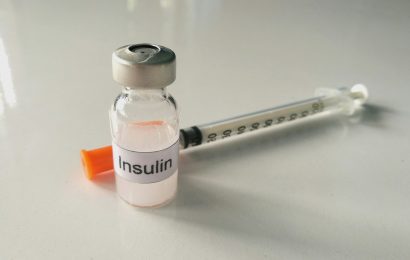“I want to get off some of these drugs,” Ellen told me. “But my doctor says I need them. I’m on three for glucose, two for blood pressure, and one for depression. They’re costing me hundreds every month. What can I do?”
Ellen is a health-coaching client of mine, age 62 with Type 2 diabetes. She works as an executive secretary in an insurance company. It’s stressful. She’s usually there from 8 AM until 6 PM or later and comes home “too tired to exercise.” She mentioned that just “putting herself together” for work every day requires an hour of prep time. “You have to look good for these executives,” she says.
I asked about her drugs. She said she takes metformin (Glucophage and others), sitagliptin ( brand name Januvia), and pioglitazone (Actos) for diabetes, lisinopril (Privinil, Zestril) for blood pressure, simvastatin (Zocor) for cholesterol, and paroxetine (Paxil) for depression. Her A1C is now at 7.3%, down from a high of 9.9% a year ago, when she was on only two medicines.
“I think the drugs are depressing me,” she said. “The cost, the side effects… I have nausea most days, I have cough from the lisinopril. That doesn’t help at work. I don’t know what’s worse, the drugs or diabetes.”
What would you have said to Ellen? Although I strongly believe in reducing drug use, I told her what most experts say, that she can get off some, possibly all diabetes drugs, but it will take a lot of work. Asqual Getaneh, MD, a diabetes expert who writes for Everyday Health, says that doctors want to be “assured that an A1C will stay down” if a person goes off medicines. She says doctors usually won’t reduce medicines until A1C drops below 7.0%.
In the ADA publication Diabetes Forecast, pharmacist Craig Williams, PharmD, writes, “Unfortunately, the medications that are used to help manage blood glucose in people with diabetes do not fix… the diabetes itself. As a result, the medications generally cannot be stopped without losing the blood glucose control that they were providing.”
But Williams says not to give up. “Lifestyle changes can [reduce] the need for long-term medications, and sometimes enable people to stop taking them altogether… When we do stop therapies or reduce the dosages…, our goals for good control remain an A1C of less than 7.0% percent, a fasting morning blood glucose below 130 mg/dl, and random or post-prandial (after eating) blood glucose levels not above 180. If those targets can be maintained with lower doses or no drugs at all, then it is safe to change your regimen.”
Ellen’s A1C is still above 7.0%, so experts like Williams and Getaneh wouldn’t want her to change medicines now. But then, that’s what they all say. Medications are what our doctors do. That’s pretty much all they know. There are now at least eight categories of diabetes medicines, each with their own means of action and side effects.
One doctor who encourages reducing medications is Michael Dansinger, MD, a diabetes expert on WebMD. He encourages reducing or discontinuing medicines if it is safe to do so. In his view, the first drugs to stop would be insulin and sulfonylurea drugs, because they can cause hypoglycemia.
“Insulin dose reduction,” he says, “typically mirrors dietary carbohydrate reduction, and many patients are quickly using half as much insulin… Weight loss often brings additional reductions… The majority of my patients have not been able to discontinue insulin altogether, although nearly all of them have been able to significantly reduce their dose as well as their A1C levels.”
“But,” said Ellen, sounding frustrated, “I’m not on insulin or those sulfonyl-whatevers. How does this information help me?” Dr. Dansinger says that, after insulin and sulfonylureas “other drugs, such as pioglitizone (Actos) come off next. I typically wait until the A1C is 6.5% or less to propose stopping such drugs, and would not initiate or re-initiate any diabetes drugs (other than metformin) unless the A1C is above 7.0%.”
Ellen is on Actos, so that might be the first drug to try and stop. It’s one of the more expensive ones and carries increased risks of heart attack, according to a large study published in the journal Circulation.
So can Ellen get off drugs? Can she get her A1C down to 6.5%? Is it all about the carbohydrate? Obviously, she needs to move her body more and reduce stress. But how? Perhaps she can not work quite so hard for such long hours. “But if I do that,” she says, “I’m afraid they’ll let me go for someone younger.”
Or should she just stop the Actos or the Januvia and see what happens? Or drop some of the other meds? We’re still talking about it, but what would you advise? To be continued…
You can see more about my health-coaching practice at this Web page.




